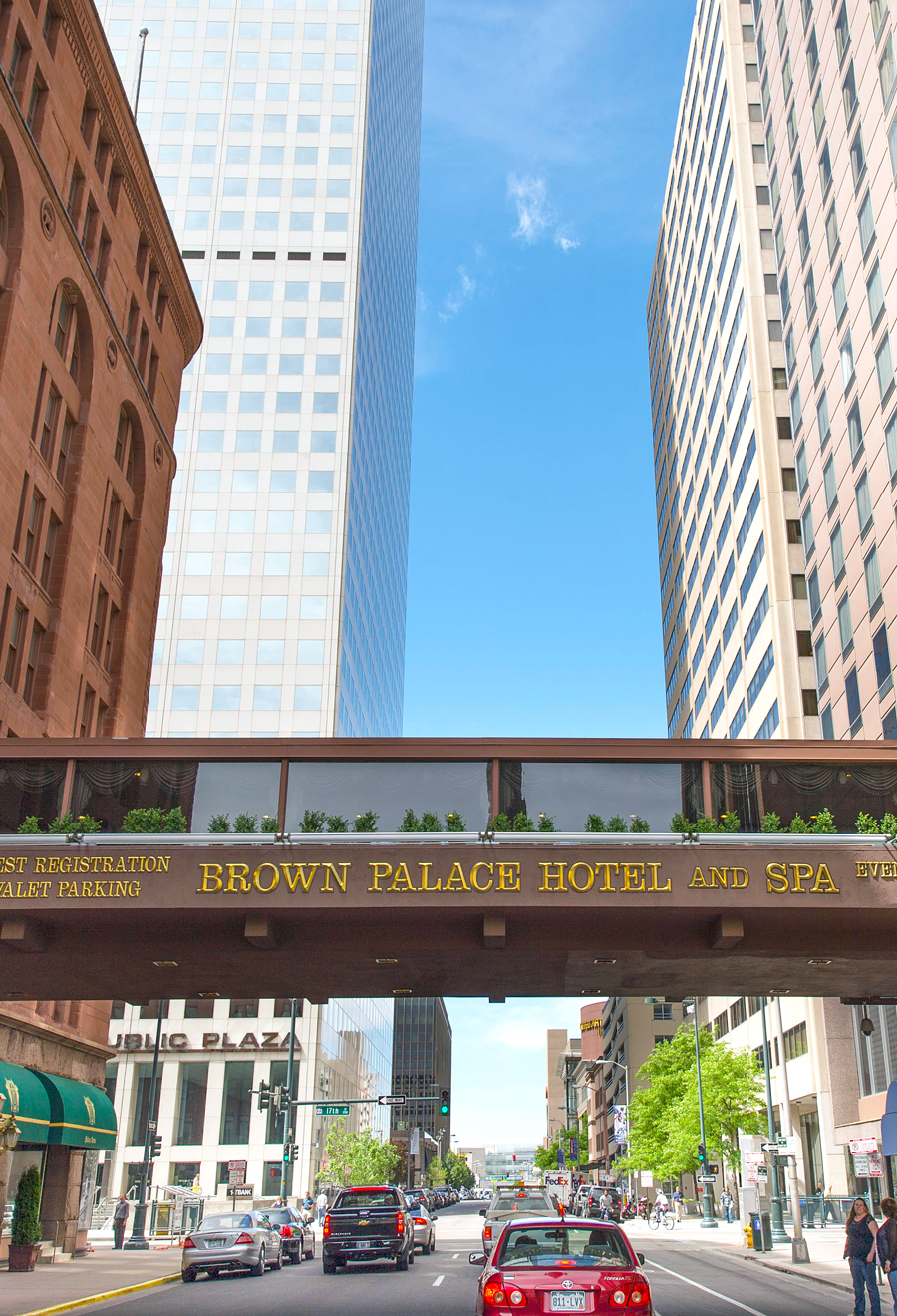Nancy Reagan once said that living in the White House was like living in a fancy hotel. The former first lady would know: Throughout America’s history, U.S. presidents (and their families) have sought refuge in some of the country’s most luxurious hotels while traveling on official business. These hotels have served as conference rooms, raucous party spots, and temporary sanctuaries where presidents can confidently conduct business out of the public eye. Some hotels have been favored time and again by U.S. presidents, becoming intertwined with the fabric of American politics. Read on to learn about five favorite hotels of former U.S. presidents over the years.
The Hermitage Hotel – Nashville, Tennessee
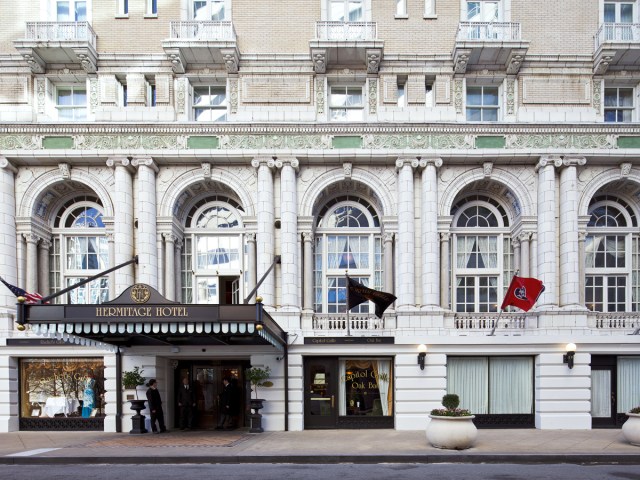
Nashville’s original “million-dollar hotel,” the Hermitage has been a Tennessee political hot spot since opening in 1910. From its earliest days, the hotel — named after President Andrew Jackson’s nearby estate — has been a go-to for governors, state legislators, and lobbyists, thanks to its location near the Tennessee Capitol. It also played a pivotal role in the historic 19th Amendment, acting as headquarters for many in the fight for suffrage.
Of course, the Hermitage has welcomed several U.S. presidents over the years, too. President William Howard Taft was the first to grace the breathtaking Beaux Arts building at a banquet in 1911. Presidents Woodrow Wilson, John F. Kennedy, Richard Nixon, and Lyndon B. Johnson were also known to frequent the Hermitage, along with more recent former presidents including Bill Clinton and George W. Bush.
Despite its popularity among political heavyweights, the hotel has faced uncertainty through the years — it briefly closed its doors from 1977 to 1981. But more recently, the Hermitage has undergone additional renovations and restorations that have preserved its Southern charm, including the lobby’s famous painted glass ceiling.
The Blackstone – Chicago, Illinois
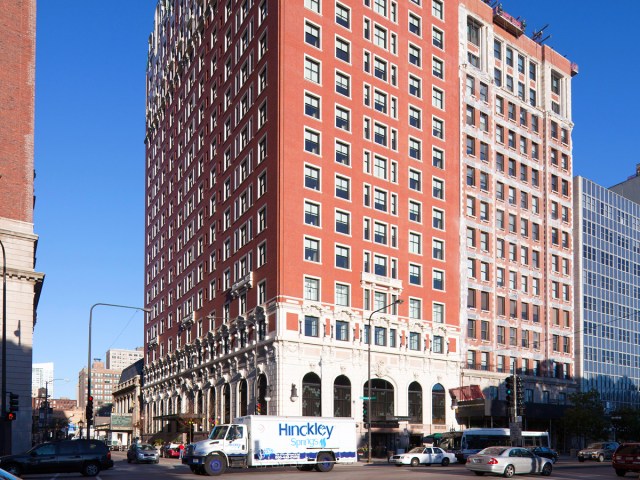
Billing itself the “Hotel of Presidents,” the Blackstone has been one of the most prestigious hotels in Chicago since its 1910 opening on the city’s famed Michigan Avenue. The turn-of-the-century Beaux Arts beauty has hosted several U.S. presidents in its time, from Theodore Roosevelt to Jimmy Carter and Dwight D. Eisenhower, the latter of whom watched his own presidential nomination on television in the historic Suite of Presidents in 1952.
President John F. Kennedy also favored the Blackstone’s Suite of Presidents while staying in Chicago — it was in this room, in 1962, that the 35th president enjoyed a bowl of the hotel’s famous Boston clam chowder before rushing back to the White House to attend to the Cuban missile crisis. The luxurious suite, which is available for the public to book, boasts sweeping views of Lake Michigan and Grant Park. Its primary bedroom was even inspired by President Kennedy’s bedroom at the White House.
The Waldorf Astoria – New York, New York
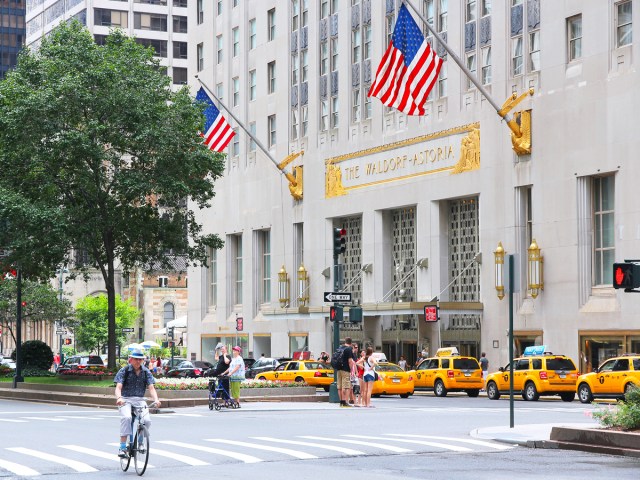
Few hotels garner as much political prestige as the iconic Waldorf Astoria in midtown Manhattan. The hotel’s Presidential Suite is nothing short of legendary — over the years, it has hosted every sitting U.S. president from Herbert Hoover to Barack Obama. Perhaps the hotel’s most famous admirer, however, was President Franklin D. Roosevelt, who reportedly used the hotel’s secret Track 61 — a hidden railway platform beneath the building — to discreetly arrive in his private train car.
The historic hotel, which originally opened on Park Avenue in 1931, temporarily closed its doors in 2017 for extensive renovations and is currently set to reopen in 2025. With any luck, the Waldorf Astoria’s historical art deco design and presidential ephemera — including a rocking chair favored by President John F. Kennedy — will remain proudly displayed for future guests.
The Fairmont – San Francisco, California
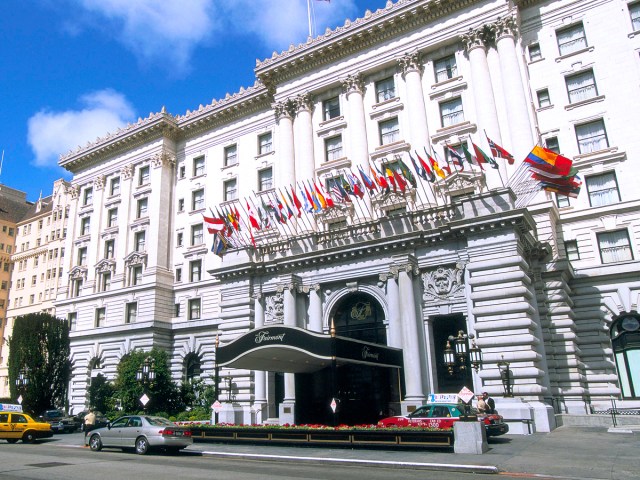
Perched atop the swanky Nob Hill neighborhood, San Francisco’s Fairmont Hotel opened its doors in 1907, a year after rising from the ashes of the great earthquake that all but destroyed its original building. Two years later, President William Howard Taft became the first U.S. president to make the hotel his temporary home on the West Coast, but he wouldn’t be the last. Every sitting president since Taft has also stayed at the legendary property.
The Fairmont is known not just for its opulence, but also for its secrets. The luxurious penthouse suite, spanning 6,000 square feet, boasts a hidden passageway behind a sliding bookcase — a feature that, according to legend, was used by President John F. Kennedy during his stays. In addition to its presidential history, the Fairmont also holds a special place in U.S. diplomacy: In 1945, it was the site of the drafting of the United Nations Charter.
The Brown Palace – Denver, Colorado

Since opening in 1892, the Brown Palace has been a Denver landmark, hosting countless celebrities and dignitaries that include several U.S. presidents. Theodore Roosevelt was known to celebrate with Champagne and cigars after hosting press conferences in the hotel’s triangular, Romanesque building, while President Dwight D. Eisenhower famously made it his “Western White House” during the summer of 1955. While staying in the hotel, he practiced his golf swing and ran his presidential campaign on site.
Three suites at the Brown Palace are named after former presidents who favored the downtown Denver digs while in town: the Eisenhower, the Roosevelt, and the Reagan, the latter of which was recently remodeled in the style of a 1950s ranch. Indeed, only two former U.S. Presidents have not stayed at the Brown Palace since Roosevelt’s presidency: Calvin Coolidge and Barack Obama.
More from our network
Daily Passport is part of Inbox Studio, an email-first media company. *Indicates a third-party property.






